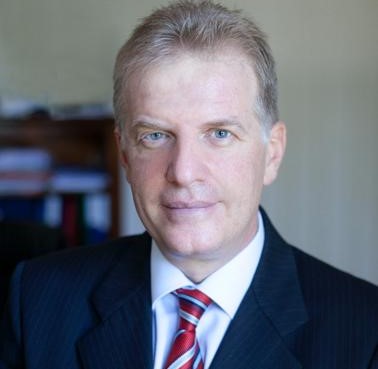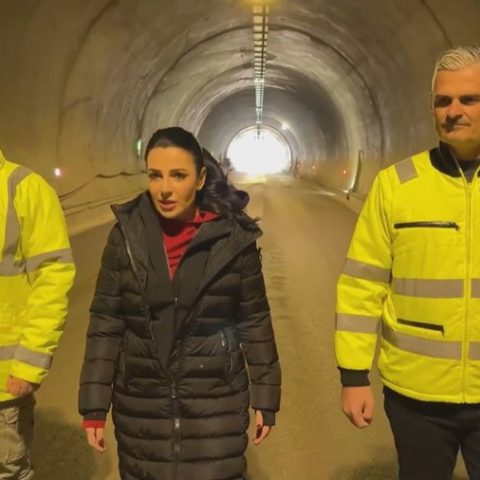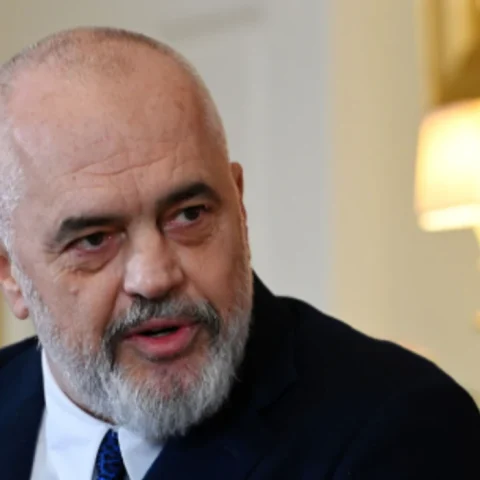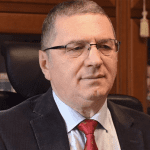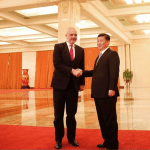Jelica Minic came to Albania this October for the conference “The final status of Kosova and Security in the Balkans”, an event organized by the Albanian Institute for International Studies. An economist by education, Minic’s experience varies from being active in governmental levels to the NGO high ranks. In 2000 she was assistant Foreign Minister of Yugoslavia. Currently she works for the Institute of Economic Sciences in Belgrade and is one of the founders of the European Movement in Serbia, one of the most influential non-governmental organizations in the country, established 1992. The main aims of the organization are to promote European integration of Serbia, regional cooperation, decentralization and strengthening of the local communities, entrepreneurship, as well as to support young people to travel and communicate with neighbouring and other European countries. One of their latest programs was gender oriented. Together with the daily news Blitz in Belgrade they elected a virtual Women Government. This Women Government is supposed to comment on everything that is going on in our society from a different angle, from the perspective of active, publicly known and very distinguished ladies, according to Minic. It was a specific breakthrough because from a list of 161 candidates, the readers of the newspaper had the possibility to elect the Women Government of 21 from an excellent pool of women experts. It was also the way to show to the politicians in Serbia, as well as to the wider public that these ladies could become very representative candidates at different parties’ lists at the forthcoming parliamentarian elections in Serbia.
Tirana Times approached her in order to learn more about the diverse and interesting experience and points of view that she brings to Tirana.
TT- There have been intensive recent developments in Serbia, even after the complete closing of the Milosevic chapter. Montenegro is now independent and the negotiations with the EU are frozen due to the international arrest mandate about Ratko Mladic. Where does Serbia stand now? What are the main challenges that the European Movement faces in this context?
Serbian political scene has been very turbulent for almost two decades. The most recent events like assassination of the Prime Minister Djindjic three years ago, fulfillment of the commitments towards the Hague Tribunal, independence of Montenegro, Kosovo status talks, the referenda for the new Constitution, Parliamentary elections to be held in December etc. are making citizens in Serbia to feel very frustrated and insecure. The European Movement in Serbia is very much focused on promoting the European perspective of Serbia and regional cooperation in order to counterbalance all internal difficulties and possible tendency of self-isolation.
TT- What is the level of domestic support for the integration process inside Serbia?
There is a paradox in that respect. The political consensus is not matching properly the social consensus which is very high – over 70% of population supporting European integration of Serbia since the year 2000.
TT- This conference is the first occasion in which Serbian scholars from Belgrade come to Tirana and discuss the future status of Kosovo. What does this tell us about the level of academic cooperation between Belgrade and Tirana? Should it change?
The level of academic cooperation between Belgrade and Tirana is unfortunately very low. The cooperation between our business people, NGOs, media, parliamentarians is slightly better. But we need also a strong political support for further cooperation and it will come. Those who are able to anticipate the future will be the winners.
TT- You launched forward some very interesting thesis about economic possibilities of cooperation. What are the main areas where you think cooperation is mostly necessary between Serbia and Kosovo but also in the general regional context?
JM- Kosovo and Serbia were integral parts of the same country, of the same state, of the same economy so the economic roots are the same and also knowledge about each other is high. Unfortunately we had the dissolution of Yugoslavia and conflict in Kosovo as well. Now we are in front of the solution of the situation after the conflict, by the international governance in Kosovo practically. Hopefully, we are going to reestablish normal links between Kosovo and Serbia again. We recently made some analysis of trade flows and movement of people between Kosovo and Serbia and we learned a lot. This was the first time that serious analysis was done by the European Movement in Serbia and the Kosovo Institute for Policy Research and Development (KIPRED) and we identified plenty of common problems: lack of regulated flows but also a lack of liberal trade, lots of illegal flows, gray and black economy. Unfortunately, we are also on the line of illegal transport of people, of arms and drugs. That is something that we have to fight against together. We have to legalize our trade flows, to improve the knowledge of our offer and demand but we should also start to think about future investments in the region. We should, in a way, anticipate the future free trade area in Southeastern Europe, and Kosovo and Serbia are going to be part of that area. We should think about the common energy market because we are part of that. We are also part of the master plan for the development of the transport infrastructure in the Western Balkans and some of the important main roads are going through Serbia and Kosovo. It is crucial for our development to modernize the railways, build new highways, and repair existing roads then to work together in building new water supply systems. Kosovo had problems with water and Serbia has water resources that can be used to support Kosovo. There is a lot of interdependence between the two which should be strengthened. All prejudices should be demystified, the agenda of the status talks should be put on the discussion table and analyzed, and if necessary some mutual compensation provided. But, we should start with open minds to help each other, not to confront each other any more.
TT-Your views and your voice seem unrepresentative to us. Are they really so? Is there a group of people in Belgrade that shares your opinions or do you feel out of place and unsupported?
JM-I am definitely not alone. There are many people who see the future in that way. Our citizens in a way are more open minded than our politicians. It’s not only in the case of Kosovo’s future. They are simply more realistic and more pragmatic. When we organized public polls in Serbia we noticed that politicians sometimes do not take care of what their electorate will say. Citizens are speaking openly for themselves. There are people who have already tried to reestablish or preserve contacts that they had with Kosovo, people that would be ready to become engaged in Kosovo, experts form different fields. One day and it is not such a distant future, perhaps 10 years or even in 5 years, new generations will establish new contacts. We are going to live in the common space trying hardly to become integral part of the European Union. This is one of the common aims of everybody in the region and it is very important to start to lobby together, to start together to change the image of the region and to improve it. In this way it will be much easier to attract foreign investors. It will facilitate the circulation of everyone in the region including experts that can share the rare resources that we have in the field of human capital.
TT- This question is in regard to a comment or a plea that you made in the conference when you asked Albanians to help Serbia. It is quite refreshing to hear such an interesting request. Could you please elaborate a little bit on what exactly do you mean by Albanians helping Serbia?
JM- Serbia is in a difficult situation having in mind all that happened in the nineties. We have now a democratic government in Serbia, which in fact needs support from everybody to stay democratic. We are now going to have new elections, hopefully we are going to elect again a new democratic government which will again need help from the European Union, from the international community, from the region and specifically from Albania and other former Yugoslav republics with whom we had or had not conflicts. As it is our duty to support all democratic governments in the region, it is also the duty of the government in Serbia to welcome all efforts of democratic oriented forces in Kosovo, Albania and the region. We should start to think about each other and our mutual interdependence and we should start to send positive signals to each-other, to announce publicly some good messages. Otherwise we are going to keep ourselves in a ghetto of negative energy and bad will.
TT- Finally, how do you see the future of Kosovo? What, according to you, will be the outcome of the Serbian elections and constitutional referendum? How will that affect Kosovo?
I see Kosovo as an independent entity, but not immediately. As it was told at the conference, the problem is more how and when. And a very crucial question is: could we expect the international community and EU first of all, to help properly consolidation, further democratization and economic development in Kosovo. This is a long term interest of Serbia and the whole region. Hopefully, Serbian elections will bring a democratic government which will be able to give solutions for a long list of problems Serbia is faced with. After the elections and referendum on the new Constitution, Serbia is probably entering a new period. Positive economic performances could help political stabilization, and defining a new Kosovo status will become inevitable precondition for the European future of both Serbia and Kosovo. The status and treatment of Serbian and other minorities in Kosovo will become a test for Kosovo’s democratic capacity and sustainability of the regional peace and stability.


